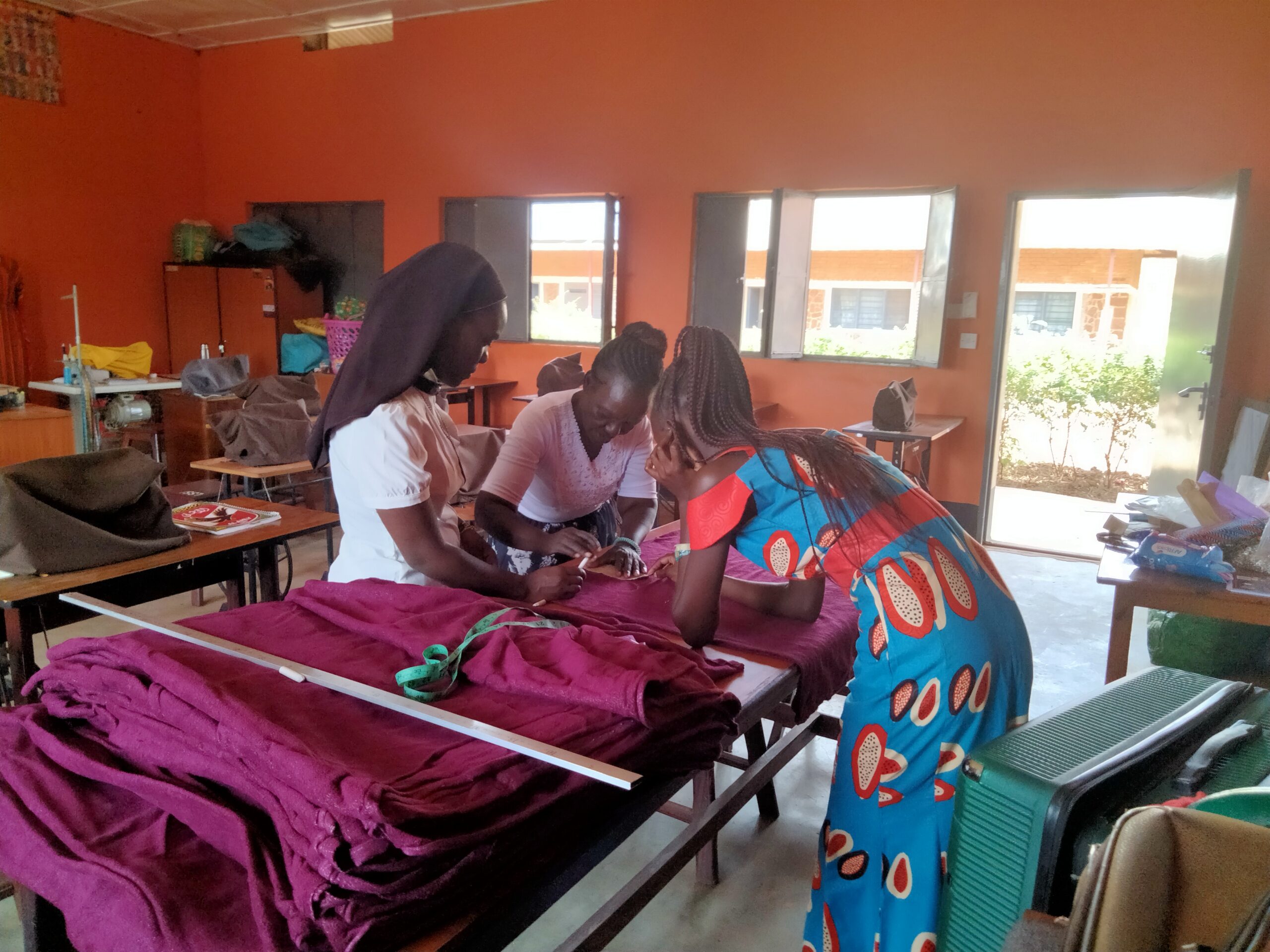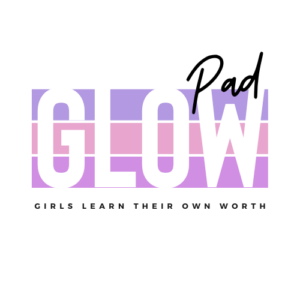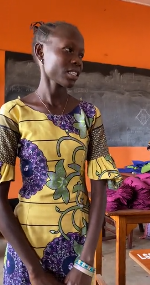
For International Women’s Day, we at IJI are taking this moment to highlight ‘period poverty’ which affects women all over the world, including Ireland, and showcasing an amazing start-up project which will not only tackle the problem facing women and girls in marginalized communities but build new opportunities to strengthen livelihoods.
Period poverty is the struggle many women and girls from low-income households’ face while trying to afford menstrual products. As you can imagine, this term also relates to increased economic vulnerability and inequality women and girls face due the financial burden to access supplies which are not only menstrual pads and tampons, but also access and costs in relation to pain medication and underwear.
The impact of period poverty is significant and often in the contexts where we work there is stigma attached to such natural functions and girls are shamed not only jeopardising their own wellbeing but their attendance and learning at school due to needless discomfort and embarrassment.
As well as the lack of affordable hygiene products, misinformation and a lack of education worsens the experience of vulnerable girls and compels them to miss school and feel ashamed for bleeding – this domino effect means teens are jeopardising their own futures over needless period stigma, a phenomenon not unique to the global south but present here in Ireland too.
According to the Financial Services Union (FSU) for adult women: “social taboos and gender stereotyping has stigmatised menstruation as something that should not be discussed. This stigma has created a negative impact on those who want to speak about their issues in the workplace” and according to Plan International, in 2019, of the 1,100 girls surveyed between the ages 12-19, 50% struggled to afford period products and 55% were embarrassed by their periods. A key finding in that study found that 61% of girls surveyed had missed school as a direct result of their period.
As you can imagine this stigma is far greater in the global south and in places like South Sudan, period poverty and shame are another harm inflicted on women and girls already struggling to obtain even the most basic necessities often taken for granted on this side of the globe. It’s estimated that one in 10 girls in Africa will miss school when they have their periods and without the right support and guidance, girls can drop out altogether leaving them more vulnerable to child marriage.
At IJI, we are determined to support women and girls and see them empowered to take ownership over their own lives with sensitive and inclusive support to focus on their education and self-development – the key to a brighter future.
An exciting project named ‘GLOW Pads’ has launched in Loyola Secondary School (LLS) in Wau, South Sudan which aims to tackle not only period poverty in the area but empower women to start their own menstrual hygiene businesses.
 GLOW stands for Girls Learning Their Worth and is a two branched project whereby through the tailoring modules available at LSS, students engaged with the trade school will learn how to make reusable pads introducing new income streams for local women in the area.
GLOW stands for Girls Learning Their Worth and is a two branched project whereby through the tailoring modules available at LSS, students engaged with the trade school will learn how to make reusable pads introducing new income streams for local women in the area.
As well as being more environmentally conscious, as the pads can be washed and reused for a few months, the GLOW project is also about awareness building and learning.
The GLOW guide has been developed by Alish McDonald, an experienced teacher and sexual health facilitator and Caroline Sanga, the development officer at the East African Jesuits development office in Rumbek, South Sudan, who have worked with us to develop a teaching guide for classrooms and community facilitators to combat shame and stigma, dispel myths and misinformation and give girls the information to make informed and safe decisions around their menstrual health.
 Carol William, a tailoring student at LSS says that:
Carol William, a tailoring student at LSS says that:
“she has learnt so many things about pads. As Mother Cecilia has taught us how to measure, how to cut and how to machine. And it is also a source of employment to people. And it is very important to learn how to make the pads. That we can employ many people and make a difference in South Sudan”
This project can only grow from strength to strength as more girls LEARN THEIR WORTH – so watch this space!

